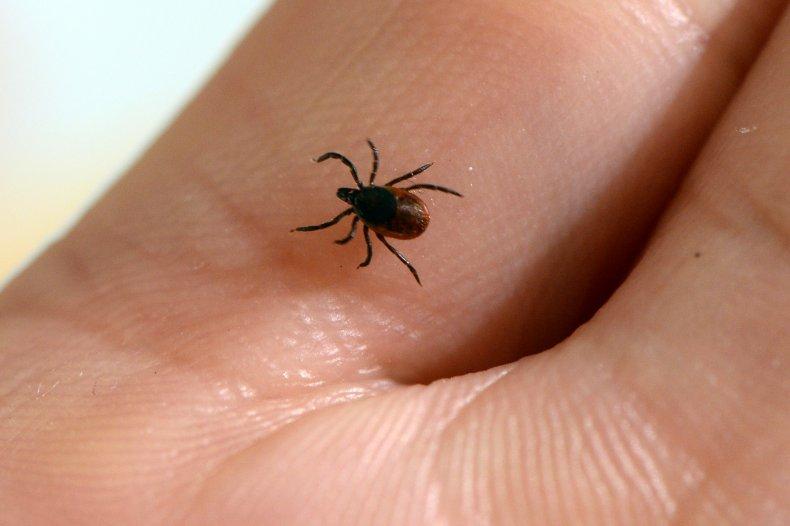Lyme disease is a significant health concern in many parts of the world, transmitted primarily through the bites of infected ticks. Traditional approaches to combat the disease have focused on targeting the Borrelia bacteria responsible for causing Lyme disease.
In this breakthrough study, conducted by the French National Research Institute for Agriculture, Food, and the Environment in collaboration with the National Social Security Administration and the National Veterinary School of Alfort, scientists rather than attempting to directly eradicate the disease-causing bacteria, they focused on the tick’s microbiota – the community of harmless bacteria living in the tick’s gut.
To achieve this, they employed a “Trojan horse” technique. They introduced a harmless bacterium into the tick, which then acted as a stimulant to trigger the production of antibodies that interacted with the tick’s microbiota. These antibodies, in turn, prevented the colonization of the tick by the Borrelia bacteria that cause Lyme disease. By neutralizing the ticks as hosts for the harmful bacteria, the vaccine disrupts the transmission cycle of the disease.
Lyme disease is particularly prevalent in France, where up to 20 percent of ticks carry the Borrelia bacteria. Since 2017, over 72,000 tick bites have been reported to French health authorities. Similarly, in the United States, approximately 30,000 cases of Lyme disease are officially reported to the Centers for Disease Control and Prevention (CDC) by state health departments, but the actual number of cases is believed to be much higher, possibly exceeding 400,000 cases.
The effectiveness of the newly developed vaccine was tested on mice. Mice that were injected with the vaccine showed a remarkable reduction in tick colonization by Borrelia bacteria. However, it is important to note that the vaccine did not prevent the mice from experiencing the symptoms of Lyme disease, as the bacteria were still transmitted through the ticks’ bites.
“These findings suggest that Borrelia is highly sensitive to tick microbiota perturbations and that departure from the modulation induced by the pathogen in the vector microbiota pose a high cost to the spirochete,” the authors wrote in the paper.
“Network analysis emerges as a suitable tool to identify emergent properties of the vector microbiota associated with infection-refractory states. Anti-microbiota vaccines can be used as a tool for microbiota perturbation and control of important vector-borne pathogens.”
“Ticks are an important vector of disease due to various factors,” Alejandro Cabezas-Cruz, a researcher specializing in parasitic immunology and co-author of the study, told French news outlet Libération.
“First, their need to feed on blood and their ability to adapt to different environments. Additionally, ticks can associate and transmit various pathogens through their blood meals, making them effective vectors. Another important factor that makes ticks good vectors is their complex saliva, which assists pathogens in their transmission. Finally, they have a longer lifespan than other vectors, such as mosquitoes. Some species of ticks can live for several years.”
“By affecting the development of pathogens in vectors, this vaccine could help reduce vector competence and thus reduce the transmission of diseases, such as Lyme,” Cabezas-Cruz said. “Although the research, regulation and approval process can take about 10 years for humans, it is possible that it will be applied more quickly in animals, especially in livestock. This promising approach offers new perspectives for the prevention of vector-borne diseases.”
They also hope that the vaccine could be used to treat diseases passed on by other vectors, like mosquitoes.
“These antimicrobiota vaccines are interesting for other pathogens because they specifically target the vector microbiota,” Cabezas-Cruz said. “As the microbiota is essential for many vector-borne pathogens, this approach could be used to target a wide range of diseases, whether caused by viruses, parasites or bacteria.
“For example, for malaria, studies have shown that vaccinating birds with bacteria from the mosquito microbiota resulted in a strong reduction in the parasite Plasmodium sp. in mosquitoes, potentially limiting disease transmission.”
Apart from Lyme disease, ticks can transmit various other infections, including tick-borne encephalitis, babesiosis, powassan virus disease, rickettsiosis, and Crimean-Congo hemorrhagic fever, among others. Therefore, the development of a vaccine that disrupts the tick’s role as a vector for multiple diseases represents a significant step forward in public health.
While this tick-targeting vaccine shows great promise, it is essential to acknowledge that researchers are also working on developing a separate vaccine that directly targets the Borrelia bacteria. However, due to previous low consumer demand for a Lyme disease vaccine available in the 1990s, the development and approval process for a new vaccine may take several years.

